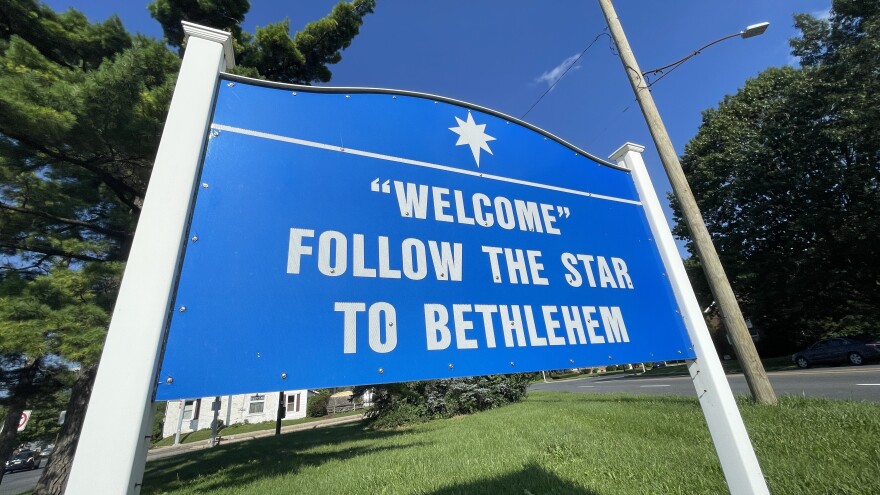BETHLEHEM, Pa. — Bethlehem homeowners will have to pay 2.6% more in property tax in 2024, as City Council approved a 2024 budget Tuesday.
Council voted 6-1, with Council Vice President Grace Crampsie Smith opposed, for the first real estate tax hike since 2021, when it rose 5%.
The new tax rate would bump the millage rate in the Northampton County area of Bethlehem from 19.14 to 19.64 mills, while the Lehigh County portion would see a jump from 6.05 to 6.21 mills.
Public safety additions
With the additional tax revenue, city officials plan to hire four new paramedics because of an increase in service calls and mutual aid response, and upgrade police body cams, dash cams and radios.
It's also the first time paramedics have been added to the city's first responder ranks since 2007.
“These are things that responsibly have to be paid for on an ongoing basis with sustainable revenues, as we say, and I think that we’re doing the right thing here,” Councilwoman Hillary Kwiatek said.
“We’ve been fortunate to not have to raise taxes for the previous two budget cycles, and now we’re raising taxes 2.6-percent — so a modest amount."Bethlehem City Council President Michael Colón
Council President Michael Colón said, “We’ve been fortunate to not have to raise taxes for the previous two budget cycles, and now we’re raising taxes 2.6-percent — so a modest amount.
“We will see those long-term savings, which will help us balance budgets moving forward because we’ve paid down debt.”
Council Vice President Grace Crampsie Smith said it didn’t make sense to raise the property tax considering the current costs of living facing residents, including groceries, housing and more.
And it’s not just homeowners potentially facing the increases, as Crampsie Smith said some landlords could pass the costs to their tenants.
“It’s not that I’m against increasing taxes, but I think when we’re in such a fine financial position we have to balance that with the needs of our residents — who many are not."Bethlehem City Council Vice President Grace Crampsie Smith
“It’s not that I’m against increasing taxes, but I think when we’re in such a fine financial position we have to balance that with the needs of our residents — who many are not,” Crampsie Smith said.
Crampsie Smith on Dec. 6 voted in favor of an 8% rise in sewer charges for 2024, after saying she supported water and sewer officials also conducting a rate study to ensure equity for city customers and others around the service area.
“You don’t want to spend one-time revenues on sustainable expenses,” Mayor J. William Reynolds said on the equipment upgrades and more to be covered by money from the property tax increase.
“It’s just the path to financial ruin for a city, and we’re avoiding it.”
Balancing the budget, ARPA spending
Before the vote, a number of residents weighed in on the real estate tax hike.
“If the city’s finances are in the best shape in a very ‘long, long time,’ why is there a 2.6-percent tax increase being voted on in the 2024 budget?” resident and recent mayoral candidate Jim Follweiler asked.
“There should be no requirement for a tax increase. Or is it just a pad budget so we have slush funds to spend as we see fit next year?”
Bud Hackett, another city resident, said he’d like to see future spending plans presented in a way that’s easier to understand. Balancing the budget should be a simpler process thanks to the American Rescue Plan money, he said.
“It appears as though the mayor’s budget, and priorities, are not well balanced in terms of how and where in the city the money is being spent."Bethlehem resident Bud Hackett
“It appears as though the mayor’s budget, and priorities, are not well balanced in terms of how and where in the city the money is being spent,” Hackett said.
“This would be a great time for the mayor and council to say, ‘We don’t need to raise taxes this year.’”
Some city capital improvements covered by ARPA funding are planned to include $3 million in street paving, a $1.3 million fire engine replacement, $600,000 to replace two ambulances and $400,000 for parks.
And once an additional $2 million of that money is used in both 2024 and 2025 to cover lost revenue from the coronavirus pandemic, the $34 million in ARPA allocations will be dried up.


